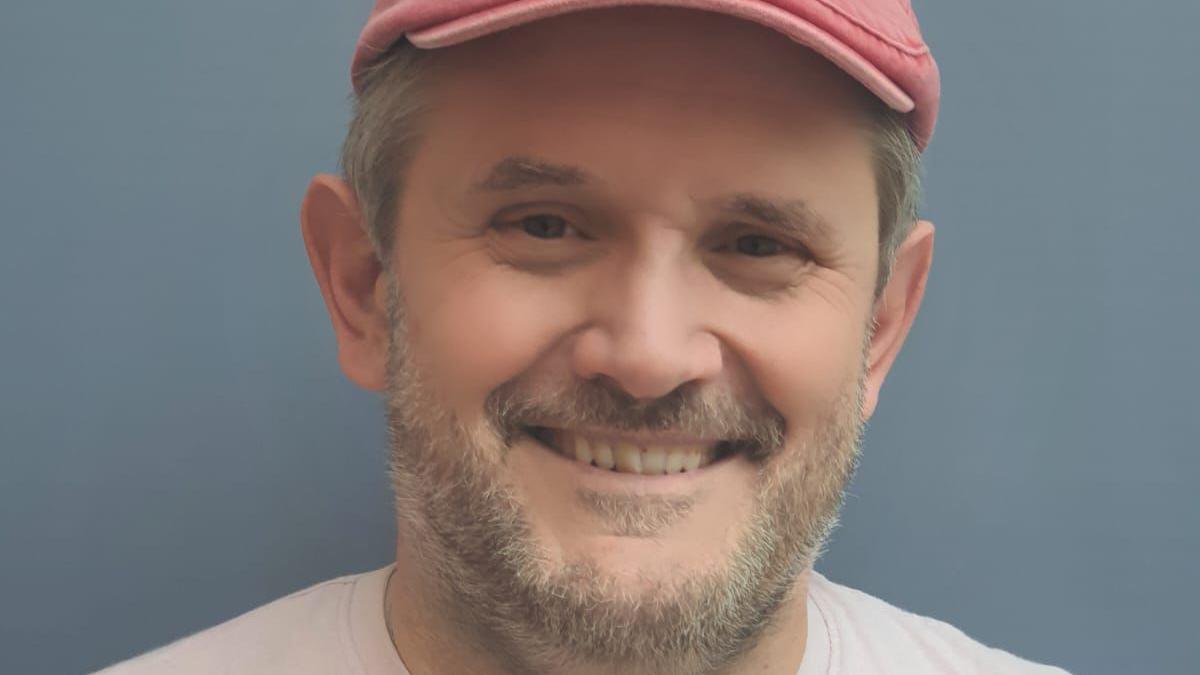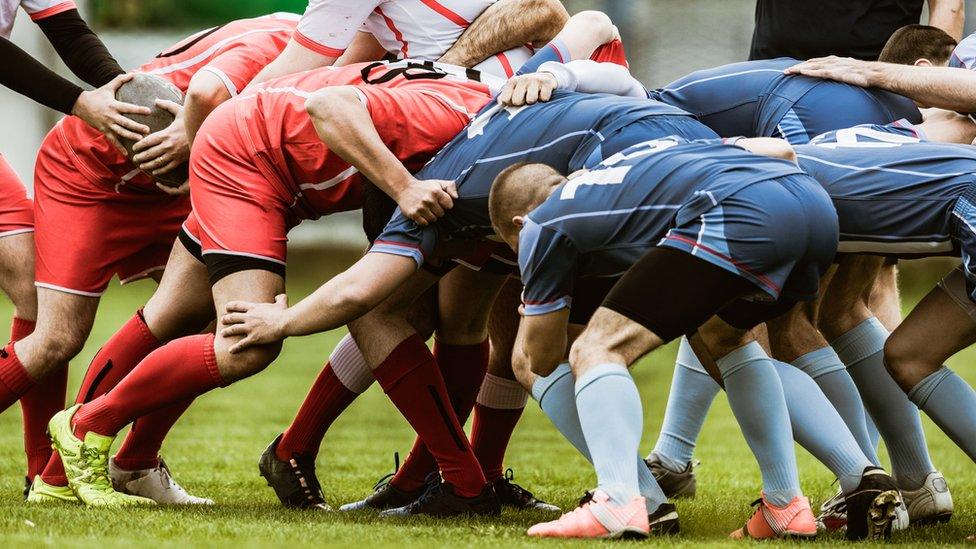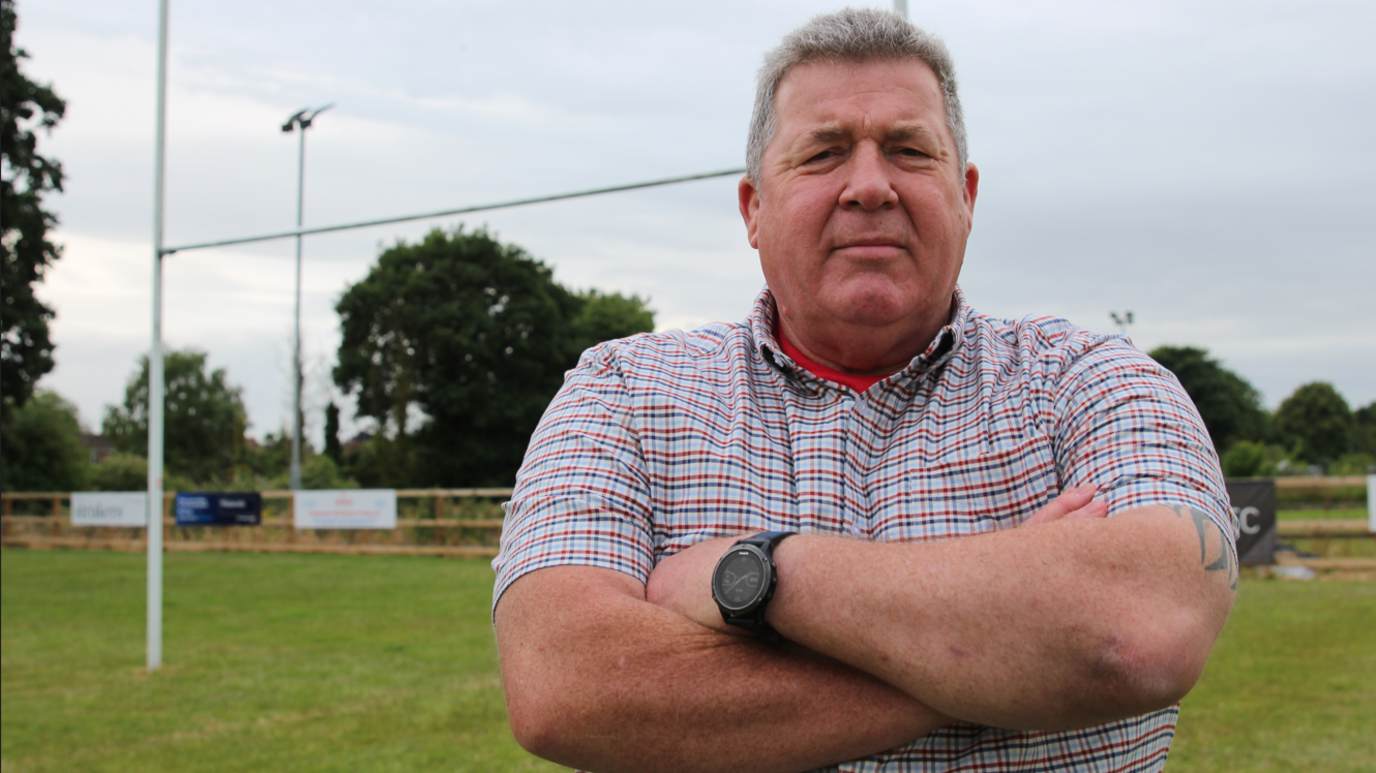Ex-rugby player calls for changes to the sport

James Collins suffered a number of head injuries during his career
- Published
A former rugby player who was diagnosed with a brain condition after suffering repetitive head injuries has called for changes to be made within the sport.
James Collins, from Worcester is one of hundreds of players suing the sport's governing bodies the Rugby Football Union (RFU), World Rugby and the Welsh Rugby Union (WRU) over brain injuries.
The former Worcester Warrior, who has hyperventilation syndrome, suffered six concussions between 2005 to 2011, forcing him to retire that year.
The three governing bodies said that player welfare had always been their top priority.
More than 500 former players who claim the sport has left them suffering from long-term brain diseases such as early-onset dementia, motor neurone disease and Parkinson's are involved in legal action against the rugby authorities.
The claimants allege the authorities failed to put in place reasonable measures to protect their health and safety.
Mr Collins said he was "pretty much housebound" and had faced "massive visual problems" for a year following his last concussion.
"My final one (concussion) I had loss of consciousness and got stretchered off in an ambulance and spent the night in hospital. And had some small brain haemorrhaging after that one," he said.
"It was much very much a year of staying in my bedroom with the curtains shut listening to audiobooks."

James Collins, pictured here in 2010, said he suffered six concussions between 2005 and 2011
He told BBC Radio Hereford and Worcester he had a series of health problems following his ordeal, such as an overactive bladder and immune system.
Speaking after a new BBC documentary called Rugby on Trial aired, Mr Collins said he thought it was "clear" that over the past 20-30 years, "enough hasn't been done."
He said the documentary was "eye-opening" and "hard to watch" and that the authorities needed to make "some changes in the game".
"It's very difficult for me to say what changes need to be made," he explained.
"But it seems that changes do need to be made to look after the players."
In a joint statement, World Rugby and the WRU said they "never stand still when it comes to player welfare at all levels of the game" and that they were "constantly innovating and evolving to make rugby safer and more enjoyable to play."
“Whilst the ongoing legal action prevents us from reaching out to the players involved in this programme, we want them to know we care, we listen and they remain valued members of the rugby family," a spokesperson said.
"The concussion protocols in place today are informed by the latest science and world leading, independent, expert opinion," the statement added.
An RFU spokesperson said: “The RFU’s paramount concern is and always has been the health and well-being of players at all levels of the game.
“The RFU entirely rejects the totally misplaced and unfounded allegations made in the BBC programme."
Details of organisations offering support with bereavement or feelings of despair are available at bbc.co.uk/actionline
Follow BBC Hereford & Worcester on Facebook, external, X, external and Instagram, external. Send your story ideas to: newsonline.westmidlands@bbc.co.uk, external
Related topics
- Published3 September 2024

- Published24 October 2023

- Published2 September 2024
